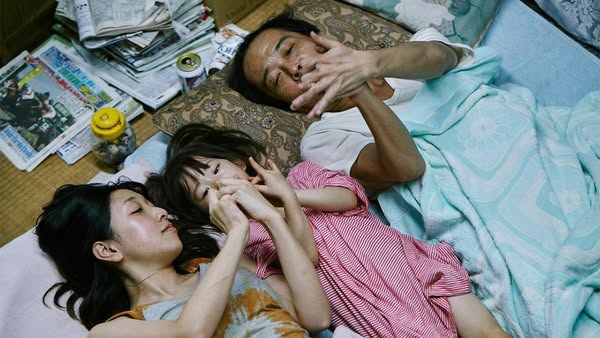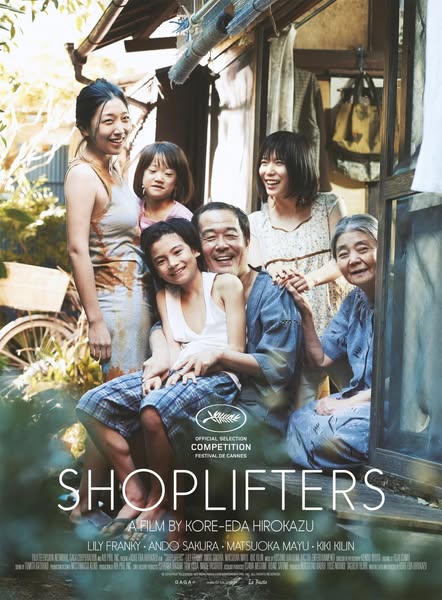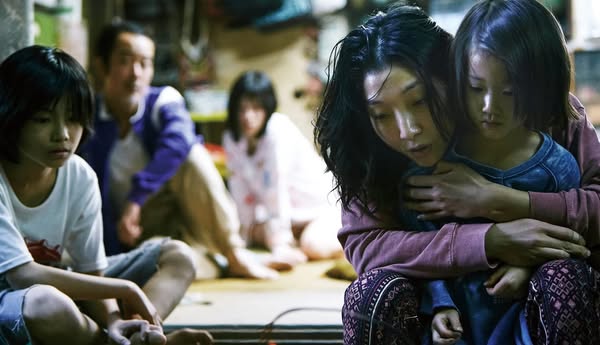Shoplifters (2018)

Shoplifters is a poignant Japanese drama released in 2018, directed by Hiroshi Kore-eda. The film explores themes of family, poverty, and morality through the lens of a makeshift family living on the fringes of society in Tokyo.
The story centers on Osamu (Lily Franky) and his partner, Nobuyo (Sakura Ando), who live in a modest home with their son, Shota (Kairi Jyo), and an elderly relative, Hatsue (Kirin Kiki). The family survives through petty theft and various schemes to make ends meet. Their lives take a turn when they discover a neglected girl, Yuri (Miyu Sasaki), who they decide to take in. As they grow closer, the film explores the bonds that form in this unconventional family and the moral dilemmas they face.

Kore-eda’s direction is subtle yet impactful, capturing the nuances of everyday life and the emotional complexities of the characters. He masterfully balances moments of warmth and humor with the harsh realities of their situation. The film invites viewers to reflect on the meaning of family and the lengths to which people will go to protect their loved ones.

The performances are exceptional, with a standout turn from Kiki Kirin as the wise and caring grandmother. Each character is richly developed, revealing their motivations and vulnerabilities. The film’s cinematography beautifully captures the urban landscape of Tokyo, juxtaposing the family’s struggles with the bustling city around them.

Shoplifters raises thought-provoking questions about societal norms, the definition of family, and the ethical implications of survival. The film invites viewers to empathize with its characters, challenging preconceived notions of right and wrong.
In summary, Shoplifters is a deeply affecting film that weaves together themes of love, sacrifice, and resilience. With its compelling narrative and richly drawn characters, it offers a profound exploration of what it means to be a family in a world marked by hardship. The film received critical acclaim, winning the Palme d’Or at the Cannes Film Festival, and stands as a testament to Hiroshi Kore-eda’s masterful storytelling.











